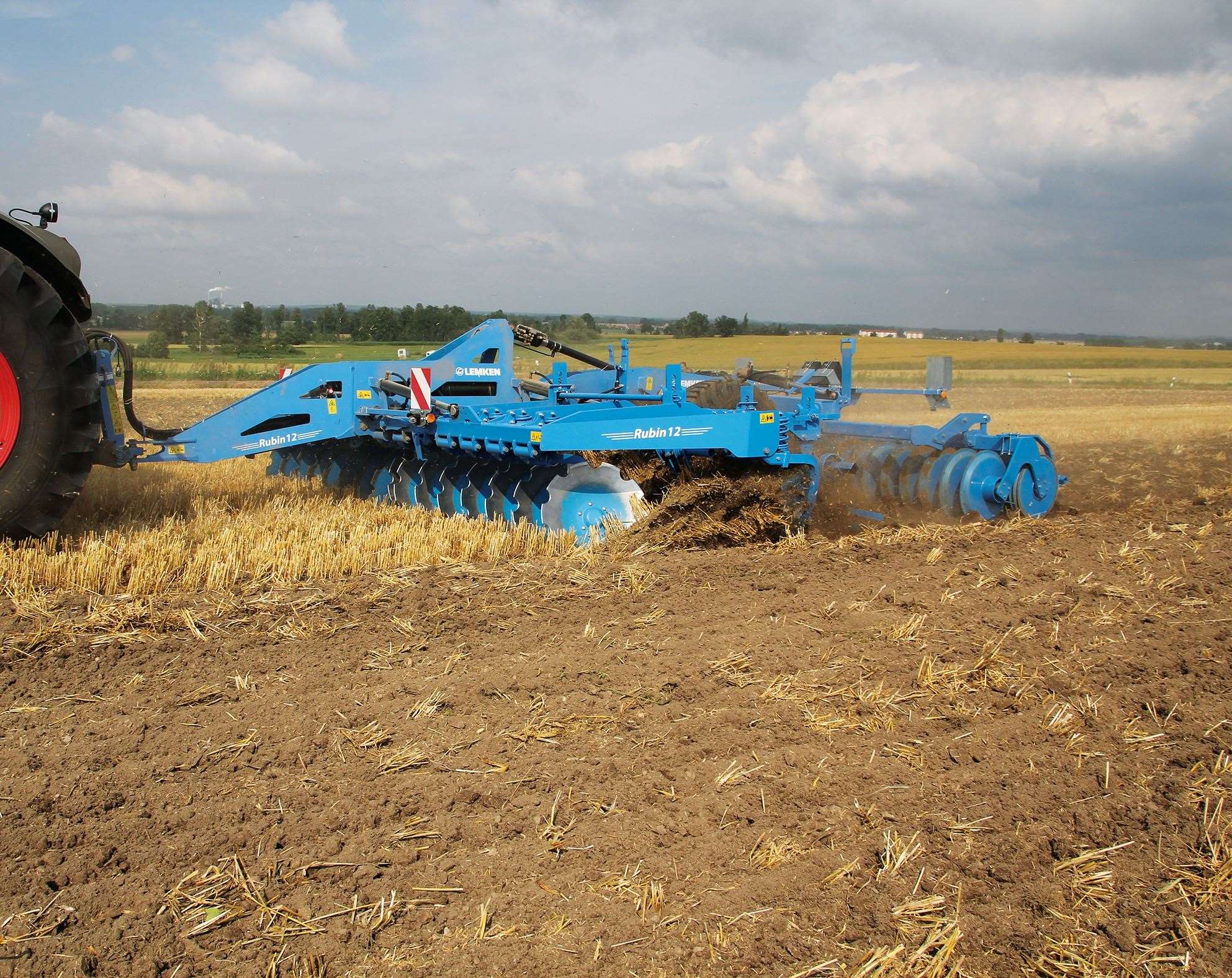Deeper, Faster, and More Intensive
From LEMKEN News
The new Rubin 12 compact-disc harrow from LEMKEN, about to be unveiled in Canada, offers farmers a new approach to primary tillage.
“The Rubin 12 provides all of the advantages of LEMKEN compact-discs while allowing farmers to work the soil at deeper depths to incorporate heavy crop residue with exceptional results,” explains LEMKEN Product Manager, Ralf Bornemann, who oversaw the development of the Rubin 12. “By going deeper, you can do a better job of mixing soil and residue than a shank cultivator while still operating at high working speeds of 6 to 10 m.p.h. for greater acreage performance.”
For Heavy Crop Residue and Breaking Pastureland
Designed to work at depths of 5 to 8 inches, the Rubin 12 delivers intensive, uniform mixing and crumbling in one pass – even in very heavy soil – making it an ideal primary tillage tool for corn growers in the fall.
“We also see many grain, canola, pulse, and vegetable growers across Canada dealing with more and more trash who want to work the soil deeper for better residue management. The Rubin 12 is perfectly suited to those types of operations,” says LEMKEN Canadian Sales Manager, Laurent Letzter. “The penetration depth and large disc diameter on the Rubin 12 are also ideal for breaking pastureland,” he adds.
29” Discs – Largest on Market
The Rubin 12 is the first compact-disc harrow to offer 29-inch serrated discs – the largest on the market. The innovative, symmetrical positioning of those concave discs eliminates the side pulling commonly experienced with compact-discs – ensuring the Rubin 12 pulls straight behind the tractor.
A new Central Hydraulic Depth Adjustment on the Rubin 12 will save farmers valuable time because it lets them set the working depth of the discs from their cab. “It’s true, hassle-free, hydraulic depth control with a self-locking mechanism that maintains consistent depth without manual spacers or pins,” says Letzter.
Like LEMKEN’s popular Rubin 9 compact-disc, the Rubin 12 combines multiple tillage functions in a single pass. An impact harrow behind the front row of discs is followed by a levelling harrow and depth guiding rollers, which pack and level the soil to help prevent erosion and moisture loss. Farmers have the option of removing the rollers if they wish.
Easy Pulling; Low Fuel Usage
The Rubin 12 offers near maintenance-free performance. Discs are individually mounted to the frame with pre-tensioned springs that let the discs ride worry-free over stones, and double angular ball disc bearings need no manual adjustments or greasing. The easy-pulling design of LEMKEN compact-discs also delivers greater fuel efficiency due to the cutting action and angle of the discs.
Six Rubin 12 models will be available in Canada with delivery beginning in July 2014. The Rubin 12 is offered in widths ranging from 10 to 20 feet with a variety of hitch options including a mounted, semi-mounted and trailed version. The semi-mounted version features a Uni-wheel, which mechanically lifts the roller and reduces the weight load on the rear tractor axle when the implement is raised for easy road transport and outstanding manoeuvrability on the headlands.
The Future of Compact-Discs
“The Rubin 12 represents the future of compact-discs and provides a glimpse of some of the innovative advancements farmers can expect to see on the Rubin 9 in the future,” says Letzter.
For more information about the Rubin 12 and other LEMKEN products, visit http://www.lemken.ca online.

Designed to work at depths of 5 to 8 inches, the new Rubin 12 compact-disc harrow delivers intensive, uniform mixing and crumbling in one pass at high working speeds – making it an ideal primary tillage and residue management tool for corn, canola, grain, pulses, and vegetable crops.
Source: LEMKEN
Click here to see more...